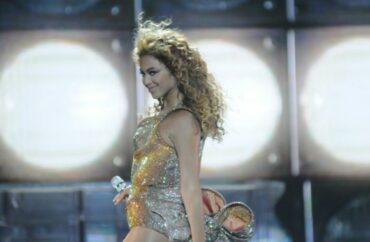
Yale University students can learn about ‘black feminist’ thought by studying singer Beyoncé
Singer Beyoncé and her contribution to the “black radical tradition” and “black feminist” thought is the focus of a multidisciplinary course at Yale University.
“Beyoncé Makes History: Black Radical Tradition History, Culture, Theory & Politics through Music,” is being taught this semester by African-American Studies Professor Daphne “D.A.” Brooks.
Students will focus on the singer’s “dazzling, multifaceted aesthetic practices” and her role in setting an “unprecedented standard” for “socio-historical complexity,” according to a copy of the syllabus obtained by The College Fix. It is cross listed in the American studies, gender studies, and music departments.
“This course centers…Beyoncé Knowles-Carter as the portal through which to rigorously examine key interdisciplinary works of Black radical tradition intellectual thought and grassroots activist politics and practice across the centuries,” the syllabus states.
Professor Brooks declined to comment on the course. “Not happening!” she wrote to The Fix. The scholar has “authored numerous articles on race, gender, performance and popular music culture,” according to her university bio.
However, a black pastor and political activist criticized the course in a phone interview with The Fix.
Project 21’s Terris Todd has previously worked at the Heritage Foundation and in the Trump administration on black outreach issues for the Department of Education.
Todd said that while Beyoncé has a great reputation as an entertainer, she is not the epitome nor the entirety of black history.
“I wouldn’t say that would be a great path for them to take, because she’s an entertainer,” Todd told The Fix. “No one references Beyoncé to politics or no one references Beyoncé as being an African American leader, even in that regard.”
Todd suggested materials cultivated to be more comprehensive of black history than Yale’s class. He specifically referenced 1776 Unites and Black History 365.
Todd said studying Beyoncé from an entertainment standpoint would not benefit the objective of learning black history due to the tendency for entertainers to be swayed by crowd opinion.
“Keep in mind, entertainers, they shift with the wind, right? They go whatever way the wind blows,” Todd said. “So Beyonce might be on one thing today, if she’s on something tomorrow, that’s what her fan base is requesting.”
MORE: Professor expands her ‘Beyoncé class’ to entire book
Todd said when studying a current entertainer in a historical sense, the class should look at that person’s own inspirations in order to go further back in entertainment history.
There are great African-American women of the past to study, Todd said, when it comes to feminism or black history. However, he said Beyoncé was not in the same league as most studied today.
“She’s not a Sheila Jackson Lee, she’s not a Harriet Tubman, she’s not a Sojourner Truth; she’s not any of those people,” Todd said. “She’s not a Mary McLeod Bethune,” he said, referencing the 19th century black civil rights activist.
“I’m sure she doesn’t even see herself that way, because those are some real serious women over the past history.”
The syllabus does discuss critiques of Beyoncé and says the class will be delving into them. Specifically, students will largely look at critiques of Beyoncé’s political silence.
The syllabus states:
It should be said too that this course will take seriously critiques of Beyoncé — ranging from Harry Belafonte’s well-known call for Knowles-Carter and partner Jay-Z to engage in radical politics (on the eve of what turned out to be the pivot in her career in this direction) to bell hooks’ famous dismissal of Lemonade (as “capitalist spectacle”) to the recent critiques of her silence with regards to the War on Gaza.
The class, which meets on Mondays and Wednesdays, also holds optional Thursday night screenings of some of Beyoncé’s visual works, as well as documentaries on black history such as “Daughters of the Dust” and “Paris is Burning.”
The course has twelve required readings, not including Brooks’ own provided readings. These readings range from books about the history of Katrina and New Orleans to writings about black feminist and LGBTQ+ theory.
MORE: Claudine Gay wins ‘leadership’ award from black alumni
IMAGE: A. Ricardo/Shutterstock
Like The College Fix on Facebook / Follow us on Twitter






Please join the conversation about our stories on Facebook, Twitter, Instagram, Reddit, MeWe, Rumble, Gab, Minds and Gettr.